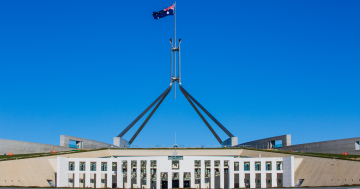
New Commonwealth Procurement Rules have been a boon for SMEs. Photo: Region.
The consultancy world is undergoing quite a transformation since the Federal Government updated Commonwealth Procurement Rules and introduced a new supplier code of conduct.
Small and medium enterprises (SMEs) have come out on top and are basking in the upturn in the amount of government contracts they’re getting at the expense of the Big Four firms.
Earlier this year, a number of SMEs were facing lean times and tough decisions with the government’s insistence on in-house consulting and fewer external contracts, and they were seeing work dry up.
However, since the procurement rules have changed, it has become obvious that the biggest losers out of the consultancy shakeup are the top end of town.
The Big Four accountancy firms are currently neck-deep in shedding staff, while the SMEs are in the ascendancy.
Here’s what a partner in one SME told Region: “The updates to the Commonwealth procurement guidelines made in July seem to have given public sector buyers a greater level of confidence to procure from Australian-based, small-to-medium enterprises.
“We are definitely seeing more RFQs [requests for quote], which is flowing through to more work.
“We’re even in the process of interviewing for a new team member, which is something we were not expecting to be able to do for a long time.”
Another manager from another smaller firm said this: “We are flat out with work. The rule changes have made it a fairer playing ground and we SMEs are not dismissed and overlooked as easily as we were not so very long ago.
“The turnaround has been sharp and stark. It’s very encouraging for a medium-sized business like ours.”
These SME consultants are happy to be quoted without attribution, partly because it’s not good for business to be seen publicly bragging about the work they are getting at the expense of the bigger firms – and partly because the big four still pose significant threats to SMEs and can be quite intimidating.
However, they are heralding the changes to clients and prospective clients without any attempt to contain their excitement over the developments.
And in a world where the contemptuous antics of large consultancies are being continuously revealed – such as PwC’s disgraceful breach of trust and all the outrageous excesses and acts of defiance being exposed through parliamentary inquiries into the big four – giving more government work to SMEs at the expense of the big four can only be a good thing.
Government entities can now directly engage an SME for procurements valued up to $500,000 (including GST), providing value for money can be demonstrated – and they are doing exactly that.
The former Coalition government tweaked the procurement rules in 2022 to back SMEs, but those changes didn’t go as far and certainly didn’t have the positive impact on SMEs as these latest updates introduced by Labor.
The procurement rules define an SME as an Australian or New Zealand firm with fewer than 200 full-time equivalent employees.
Here’s what changed since July this year for them and all service providers on the Department of Finance’s Management Advisory Services (MAS) Panel.
It is now mandated that Australian Public Service agencies and Commonwealth entities include SMEs in every approach to the panel.
A new 5 per cent flexibility allowance has been included for entities to directly engage First Nation businesses who are not on the panel.
The SME exemption threshold has been increased from $200,000 to $500,000.
The requirement to consider broader economic benefits has been reduced from $4 million to $1 million.
There is an increase in the SME target to procure at least 25 per cent of contracts by value for contracts up to $1 billion and 40 per cent of contracts by value for contracts up to $20 million.
The role of ministers in procurement is no longer all imposing and unaccountably overriding.
There is an SME statutory declaration form for those on the MAS panel and Finance is considering implementing an annual stat-dec process so firms can attest that they meet the SME definition.
It is, however, an “entirely voluntary process” to be considered this year as work on an “Australian business” definition is finalised.
Hardly an inconvenience. Finance must be getting inundated with statutory declarations as SMEs clamour to compete with each other instead of the Big Four as much.
It’s a welcome change.




















